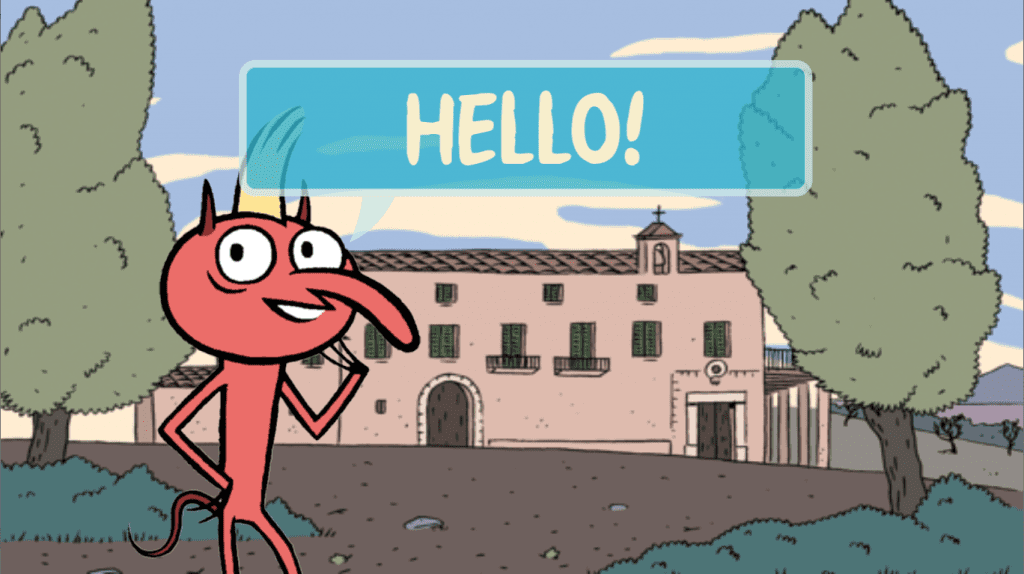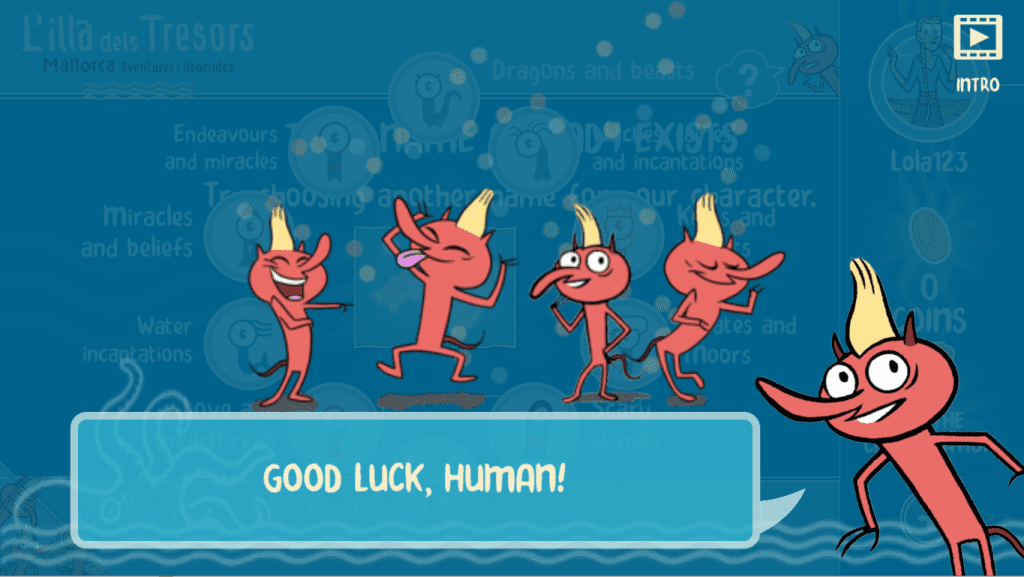The Island of Treasures

Adapting an app in the Majorcan language (a local dialect of Catalan) for English and German children.
Translating an app featuring a family game is very different from translating a software program. The translators working on the translation of the app’s translation and revision must have expertise in educational language, for both the source and target languages.
CHALLENGE:
The Mallorca Literària Foundation commissioned us to translate their Island of Treasures app into English and German, a fun and inspiring project in equal measures. We knew our team of translators had to be specialised in children’s language, and we were fortunate to be able to use two translators and two editors who, besides being excellent at what they do, had extensive expertise in this area.
To select people from our database of contributors, in addition to being professional translators, ideally, we were looking for translators who were also mums and who had read children’s stories. The German editor we selected was specialised in translating stories and poetry. The English translator had prior experience translating children’s stories. All four were mums and they’d read lots of stories to their children. All the ingredients were there, the German and English teams ticked all the boxes and everyone was enthusiastic about working on the project.
The challenge we faced was not only to translate and adapt the app for children, but also to find similar characters from children’s literature and nursery rhymes in the UK and Germany. Project management to coordinate the app developers (Cubus Games), story writers, translators and editors was crucial to ensure the project was successful.

SOLUTION:
Project management to ensure good coordination is the foundation and driving force of a software translation project like this one, ensuring that everything runs smoothly. We planned a schedule, carried out research, acted as a bridge between the various people and read a great deal. We created a glossary of characters and cultural references to provide a common description that would help the translators adapt them for their respective translations.
We started with just the English translation, which was helpful because it meant that we could compile a list of questions that arose over the course of the project, that we were able to answer with the help of the Mallorca Literaria Foundation Alcover-Moll Dictionary.
When we started the German translation, we shared with the translator and editor the list of questions and answers about the characters, both real and fictional, that had arisen in the stories. By doing that, the German translation proceeded more smoothly.
In this article, you can find out more about our translation and revision process, and why we think this process is essential to ensure a top-quality final translation. At LocalizationLab, we know that having a good team is vital to ensure good translation.
The outcome of the whole development and translation process is an entertaining app in several languages that children and their families from a range of countries can play with, to publicise the culture and geography of Majorca.

As well as overseeing translation and revision, at LocalizationLab we’re also in charge of uploading the English and German content to the developers’ content manager, and conducting an online revision of the final app. Once all this has been completed, we can be sure we’ve done the job properly.
This summer was strange and different from normal, and it’s likely that not many English or German families were able to visit Majorca. Let’s hope next summer is different, and Majorca can open up to tourists once more.
Why not download the app (from Google Play or from the Apple Store) and discover the marvellous island of Majorca with all its treasures!
If you have an app or game you’d like to translate, we’d be delighted to help.

Written by LocalizationLab
